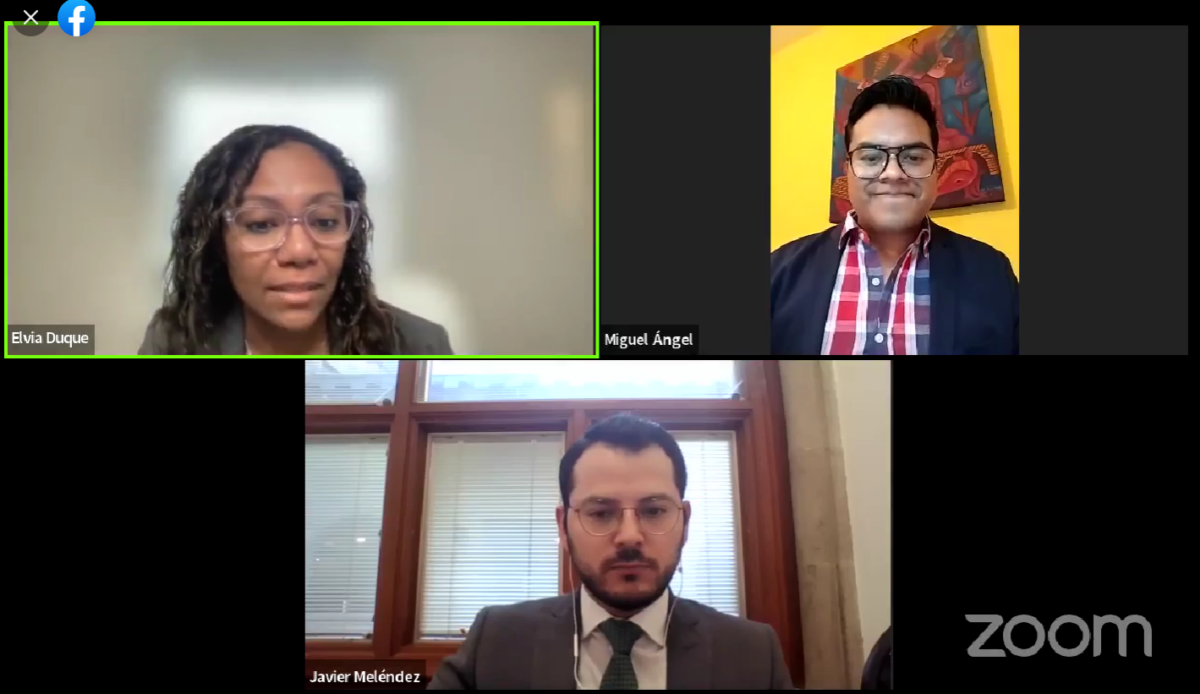Race and Equality hosts a workshop on the Protocol for Justice with an Intercultural Perspective with a focus on strengthening the enforceability of the rights of the Afro-Mexican population
Mexico City, Febuary 3, 2023.– On the World Day for African and Afro-descendent Culture, commemorated on January 24th, the Institute on Race, Equality and Human Rights (Race and Equality) hosted […]

Mexico City, Febuary 3, 2023.– On the World Day for African and Afro-descendent Culture, commemorated on January 24th, the Institute on Race, Equality and Human Rights (Race and Equality) hosted the workshop “Protocol for Justice with an Intercultural Perspective: Afro-descendent and Afro-Mexican People, Towns and Communities,” with the objective of promoting the knowledge and adoption of this protocol among civil society organizations, with the goal of strengthening the enforceability and protection of the rights of the Afro-descendent and Afro-Mexican population.
The workshop was given by Javier Meléndez, Director of International Human Rights Law, with the General Directorate of Human Rights of the Supreme Court of Justice of the Nation (SCJN for its Spanish title). For Race and Equality, the opening words for the workshop were presented by Elvia Duque, Senior Race and Ethnicity Program Officer, and the session was moderated by Miguel Ángel Alanis, Race and Equality Mexico Consultant.
In her introduction, Duque referred to the Protocol as a key tool in responding to the demands that for decades have been put forward by organizations and activists in Mexico to consolidate the effective recognition of the rights of the Afro-Mexican population. In particular, she highlighted the section “Social construction of race and ethnicity,” that contained precise concepts on racism and its multiple manifestations, like that on the process of racialization that impacts the lives of Afro-descendent and Afro-Mexican people. “These concepts we consider key in the process of professionalization and must be analyzed and contemplated in all steps of the judicial process,” she continued.
Content and the importance of the Protocol
The Protocol for Justice with an Intercultural Perspective: Afro-descendent and Afro-Mexican People, Towns, and Communities was officially presented in November 2022. Its principal objective is that judges utilize it as a toolbox to facilitate and guide their actions through the procedural moments that take place within a judicial proceeding, explained expert Javier Meléndez.
The Protocol details the development of an intercultural perspective for the impartation of justice, in which they take into account the transversal axes of this methodology: equality and nondiscrimination, the free determination and access to justice, based on juridical criteria established by the SCJN and the Inter-American Court of Human Rights.
“This Protocol began to be elaborated from a sociological, anthropological and historical point of view until it moved on to focus on legal content,” signaled Meléndez, who initiated his exposition based on the four key aspects of the Protocol: the background that led to its origin, the structure of its content, its most relevant content, and its importance for the enforceability of the rights of the Afro-Mexican population.
The expert indicated that one of the barriers to implementation was a lack of precedent and national criterion on the rights of the Afro-Mexican population. Meléndez emphasized that until that moment there were only three precedents in the field, whose approach was based on a normative equalization in the Constitution with the rights of indigenous peoples. Among these precedents was Constitutional Action 81/2018, where the SCJN pronounced for the first time on the rights of Afro-Mexican people in light of the lack of free, prior and informed consent in the process of creating legislative provisions in the State of Guerrero.
Meléndez stressed that, although this Protocol was essentially directed at judges, one of the purposes is that people who work on the promotion and defense of the rights of Afro-descendent and Afro-Mexican people adopt the Protocol as well.
This workshop was presented in part because of the work of Race and Equality, with the support of the W.K. Kellogg Foundation, initiated in Mexico under the project “Promotion of an antiracist agenda to strengthen the work of civil society organizations in the fight against racism and racial discrimination in Mexico.” Race and Equality hopes to contribute to the knowledge and adoption of the Protocol for Justice with an Intercultural Perspective: Afro-descendent and Afro-Mexican People, Towns and Communities through this workshop and other actions, and invites you to access the documents through this link: https://bit.ly/3DeNKoG.

